Alan Llavore | Office of Marketing and Communication | (909) 537-5007 |allavore@csusb.edu
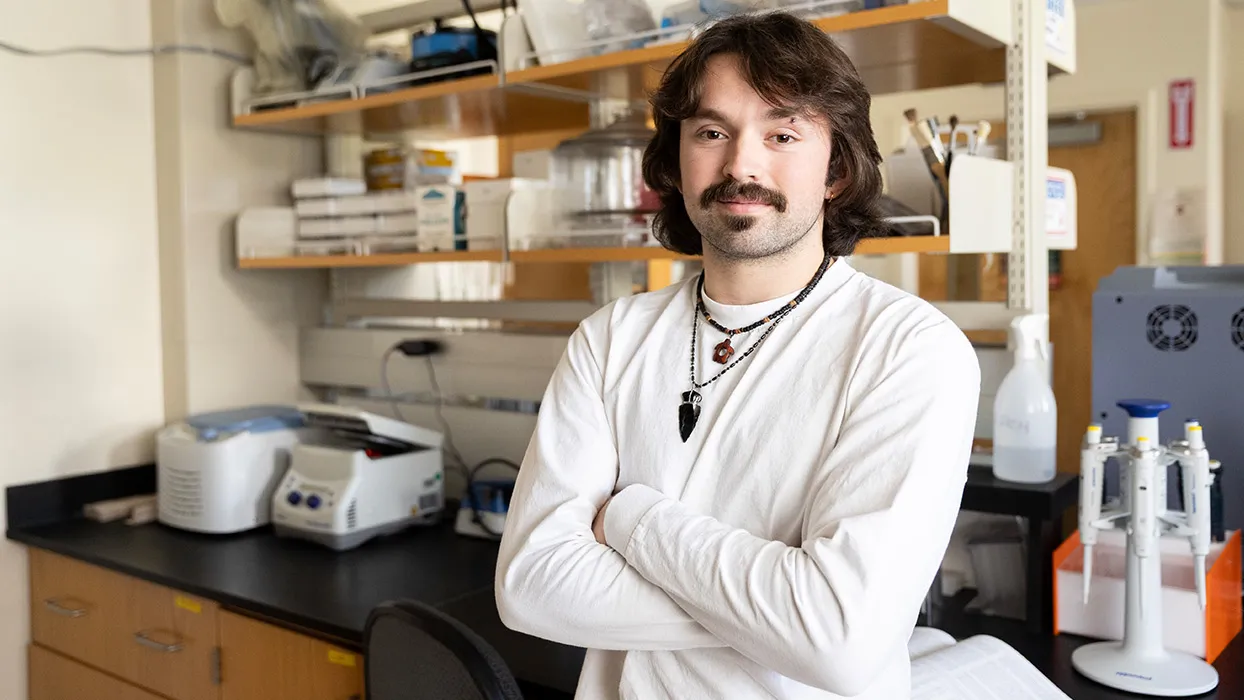
Josue Martinez, a CSUSB senior majoring in biology, was one of only 24 participants selected to participate in an intensive training program at the U.S. Department of Energy’s prestigious Environmental Molecular Sciences Laboratory (ESML) in Richland, Wash., last July. Moreover, he was one of only two undergraduates in a cohort comprised of Ph.D. students and postdoctoral researchers from around the globe.
Martinez’s interest in science can be traced back to his fifth-grade teacher at Mt. Vernon Elementary School in San Bernardino who “started the [science] ball rolling,” he said.
“Ms. Roybal demonstrated a project in class to teach us the components of a cell by pouring high-fructose corn syrup into a clear cup. Then we would use candy to represent the organelles, candy to represent the nucleus and mitochondria. It was fun because obviously I loved learning about science, but also, we were able to eat it afterwards. That was incredible.”
A self-described “nerd,” Martinez said he’s always been fascinated with science and remembers constantly questioning his mother about the world around him. “I’d ask, ‘Why do we feel pain? How can birds fly? Why is the sky red during the sunset?’” he said.
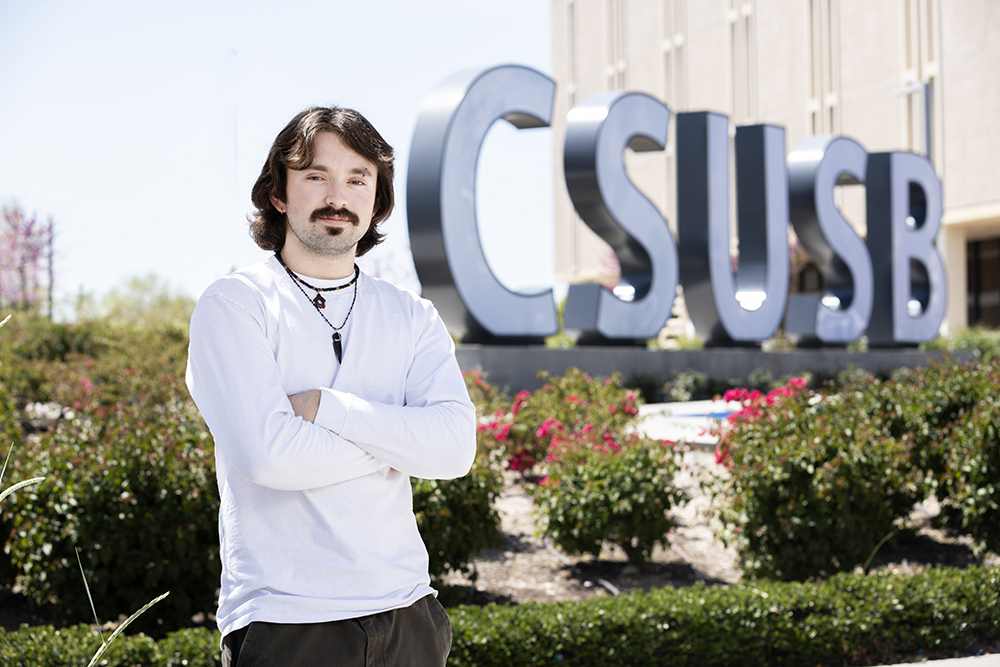
His parents, both immigrants from Mexico, nurtured his curiosity. When he was 9, his mother bought him a monthly subscription to a publication about the animal kingdom, written in both English and Spanish.
“I spent hours reading it,” he said, noting that it shaped his early interest in biology. He stored the pages in a three-ring-binder, and “I still hold on to that binder – it’s very dear to me.”
He also remembers his father bringing home a microscope, a $15 purchase at a swap meet, which gave the 12-year-old the chance to explore plant cells for the first time. “Even if I didn’t know it then, I wanted to be a part of science and have an impact on it,” he said.
After grade school, Martinez attended Middle College High School, where students have the opportunity to attend and complete college courses at San Bernardino Valley Community College while working toward their high school diplomas. He earned both a high school diploma and an associate's degree in biological and physical sciences when he graduated.
“If I can make it, so can you. I’m just a kid from San Bernardino."
- Josue Martinez
The first in his family to attend college, Martinez was accepted at a number of UC and CSU universities but chose CSUSB for its proximity to home and affordability. He began classes in 2019 but felt as if something was missing, that he was simply going through the motions.
“I was completing courses for biology, but I wasn't involved with the biology department. I was just treating it as a commuter campus. Go to school, go to classes, go home.” Then the pandemic hit. “I got to a point where I thought, ‘Man, I'm just doing the same thing over and over again.’”
But a summer project research class in plant genetics taught by Lúa López Perez, assistant professor of biology, had a profound impact on him and his academic future.
“That class changed my life,” he said. “Dr. López is a wonderful professor. Her knowledge and ambition inspired me and helped me realize I want to be like her. I want to be involved in research, and I realized that if I wanted to do that, I needed to put in some work and put myself out there.”
López Perez said Martinez is innately curious and observant, characteristics that define a researcher. “When he joined my class, he was ready to get immersed into the research process,” she said. “He quickly understood the process and made all the right connections from observation to answering the question such observation triggered.
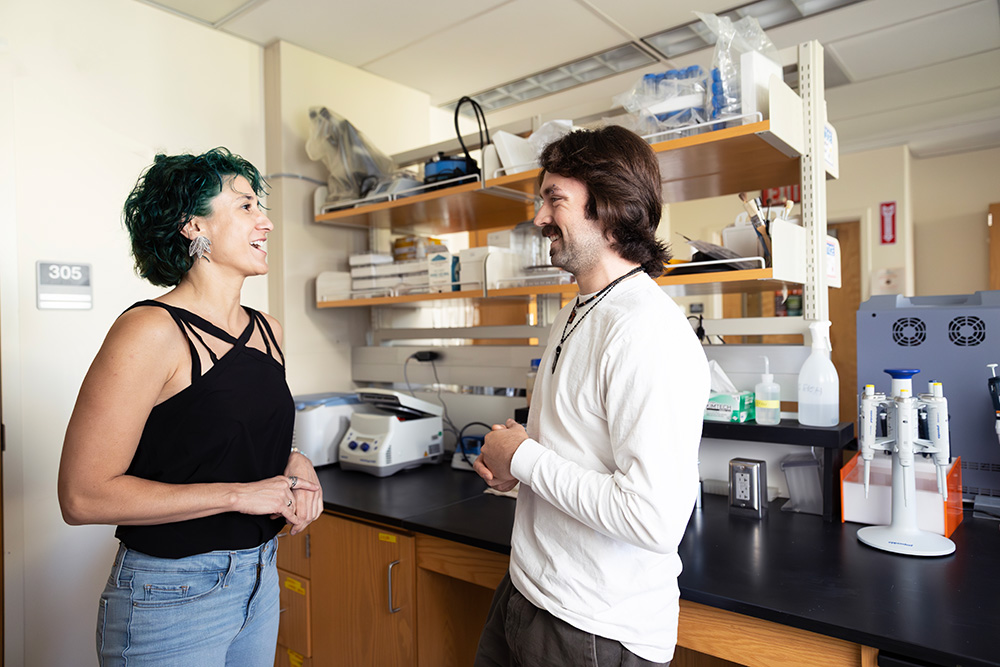
“One thing that sets him aside from most of his peers is his ability for improvement. Among all the students that I have mentored in my career, he is the one that not only listened actively to constructive criticism but reflected on it and used it,” she said. “I can say that I have never seen a student progress as fast as he did. I believe he has a bright future ahead of him.”
Martinez went on to take a biotechnology course taught by Daniel Nickerson, associate professor of biology.
“He’s another wonderful professor, and he really piqued my interest in biotechnology. After the course was finished, I asked if I could join his lab. He wanted me to experience this whole new level of science,” Martinez said.
“I didn’t hesitate to recruit Josue for my research team when he asked to join,” recalled Nickerson. “One of the biotechnology lab modules didn’t work for any lab group, and Josue’s response was ‘Let me try that again – I bet I can figure out a better way.’ And he cheerfully put his mind to a revised plan and got started.
“Josue clearly loves the research experience and freedom to test ideas,” said Nickerson. “He brings joy and curiosity with him to lab each day. I think a key part of Josue’s resilience and success is that even as he’s being thoughtful and careful in executing an experiment, he keeps his sense of ‘play’ that helps scientists ask challenging questions and attempt challenging experiments.”
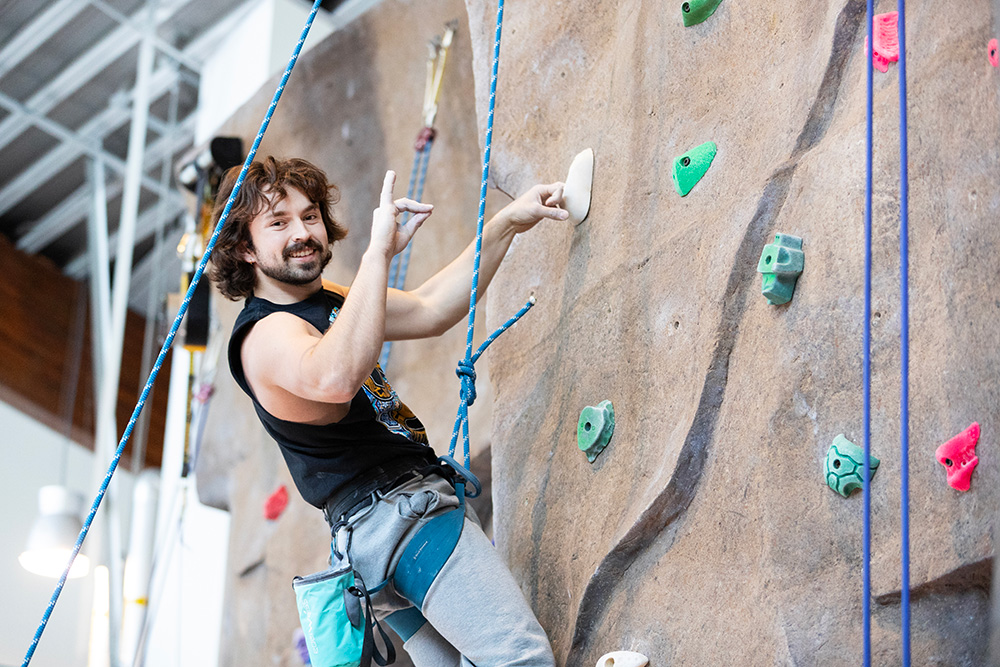
Last spring, Nickerson encouraged Martinez to apply for the EMSL training program. Thinking the chances for being chosen for the program were slim, Martinez said he was surprised to receive an acceptance letter just a few weeks after submitting his application. “Being one of only two undergraduates selected, it was hard to believe,” he said.
When he arrived at the intensive, five-day EMSL learning experience, “I felt like a fish out of water,” Martinez said. “Everyone else was either a Ph.D., a current Ph.D. student or a postdoc. But everyone was great, and they were very welcoming,” he said.
He immersed himself in advanced research techniques like Cryo-EM screening, Optical Raman imaging and AlphaFold image processing.
“There was so much content. Everyone else either knew something about the subject matter or they had the experience to be able to connect to it. But that experience, getting to meet these people, pushed me into wanting to pursue a Ph.D. myself,” he said. “For me, the biggest takeaway was: ‘Get out of your comfort zone.’”
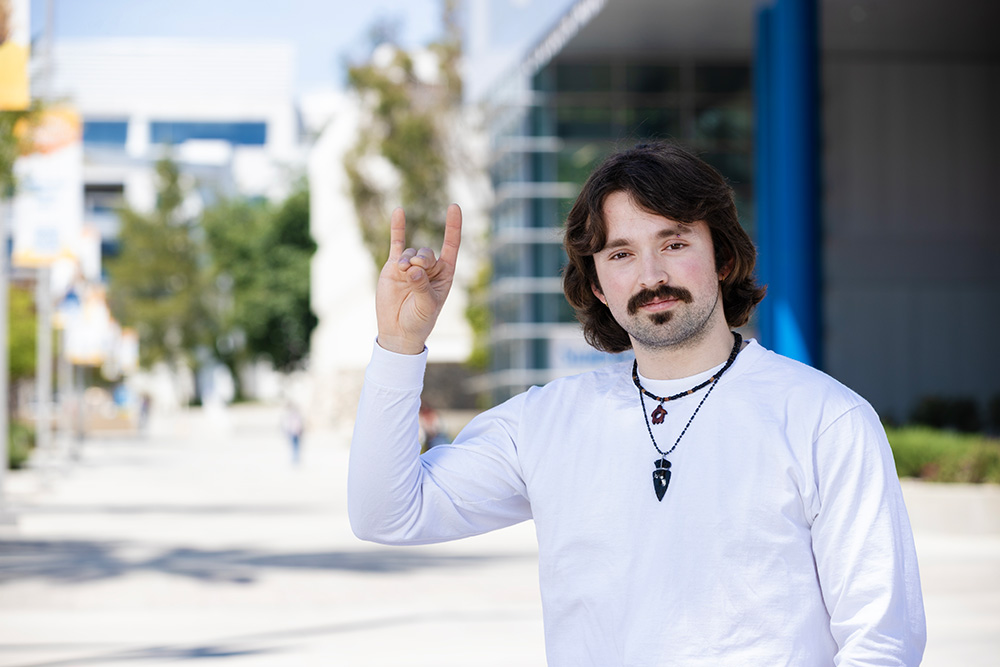
Martinez plans to graduate in spring 2026 and is applying for the CIRM Bridges program, a competitive one-year intensive program that focuses on stem cell and cancer research, which he hopes will serve as a steppingstone to a Ph.D. “I want to be at that level where I’m making discoveries,” he said.
In addition to his academic pursuits, Martinez also works 20 hours per week as a peer leader and academic coach for CSUSB’s Coyotes Achieve program mentoring first-year and first-generation students. His advice is simple: “Don’t wait until your third or fourth year to get involved. Advocate for what you want to do as early as you can.” Martinez also credits his longstanding girlfriend, Ximena, for her understanding and support as he has navigated his educational journey.
Looking back at his academic journey and his interest in science, Martinez’s fifth-grade teacher’s encouragement extended well beyond that memorable classroom experiment. Roybal made a comment on an essay that he still has, that still motivates him to this day: “Josue, you have such a wonderful mind. You’re going to change this world to be a better place.”